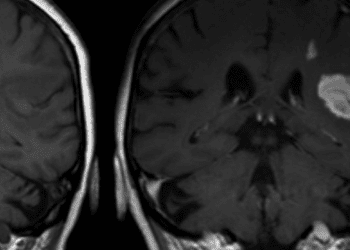Higher sodium and lower potassium urinary excretion increase cardiovascular risk
1. Patients with a high sodium-to-potassium ratio were shown to be at higher risk for cardiovascular events.
2. A higher sodium urinary excretion and lower potassium excretion in patients was shown to increase the risk of cardiovascular events.
Evidence Rating Level: 2 (Good)
Study Rundown: Increased sodium consumption has been well-correlated with an incidence of cardiovascular disease; however, sodium intake level is not a reliable measure given large inter-day variability. This study is a combined, prospective cohort study that sought to analyze the relationship between sodium and potassium urinary excretion levels and risk of cardiovascular events, which was defined as either coronary revascularization, myocardial infarction, or stroke. Urinary sodium and potassium excretion levels were measured once at the beginning of the study, then repeated several years later. After adjusting for confounding factors, the study found that higher sodium excretion, lower potassium excretion, and higher sodium-to potassium ratio were associated with greater risk for cardiovascular events. Moreover, these effects were found to be dose-dependent, as each increment of 1000mg in sodium excretion increased the risk of cardiovascular events by 18%; the inverse trend was found for potassium excretion. Taken together, by measuring urinary excretion levels to estimate intake, the study continues to support that high sodium intake increases the risk for cardiovascular disease. The study is limited by confounding factors that cannot be controlled for, inter-cohort heterogeneity, and potential lack of generalizability to the wider population given the demographic of the study cohort.
Click to read the study in NEJM
Relevant Reading: Projected effect of dietary salt reductions on future cardiovascular disease
In-Depth [prospective cohort]: In this prospective cohort study, data of six prospective studies were analyzed in combination. After excluding patients with poor follow-up or confounding dietary factors, a total of 10,709 participants were included. Each of these patients underwent at least two 24-hour urine samples at baseline, then repeated several years later. The primary measured outcome was the incidence of a cardiovascular event, defined as coronary revascularization, fatal or non-fatal myocardial infarction, or fatal or non-fatal stroke. Hazard ratios were estimated using Cox proportional-hazards models, adjusting for confounding factors including age, sex, and race. Hazard ratios were also calculated for each quartile of measured sodium and potassium urinary excretion levels. Over the median of 8.8 years of follow-up, 571 patients (5.3%) experienced a cardiovascular event. When comparing quartile 4 with the highest urinary sodium excretion to quartile 1 with the lowest, the study found that quartile 4 was significantly more at risk for a cardiovascular event (hazard ratio [HR], 1.6; 95% confidence interval [CI], 1.19-2.14). Each 1000 mg of additional daily sodium excretion was linearly associated with an 18% increase in risk for cardiovascular events. Conversely, higher potassium urinary excretion was associated with lower cardiovascular risk with quartile 4 with high potassium excretion at lower risk than quartile 1 with low potassium excretion (HR, 0.69; 95%CI, 0.51-0.91). Each 1000 mg of additional daily sodium excretion was linearly associated with an 18% decrease in cardiovascular risk. Each unit increase in the sodium-to-potassium ratio was associated with a 24% increase in cardiovascular risk (HR, 1.24; 95%CI, 1.12-1.37). Overall, these data support that increased sodium intake, as measured by urinary excretion, is associated with increased risk for cardiovascular events. Decreasing sodium and increasing potassium intake are strong non-pharmacological strategies to reduce the risk for cardiovascular disease.
Image: PD
©2022 2 Minute Medicine, Inc. All rights reserved. No works may be reproduced without expressed written consent from 2 Minute Medicine, Inc. Inquire about licensing here. No article should be construed as medical advice and is not intended as such by the authors or by 2 Minute Medicine, Inc.







